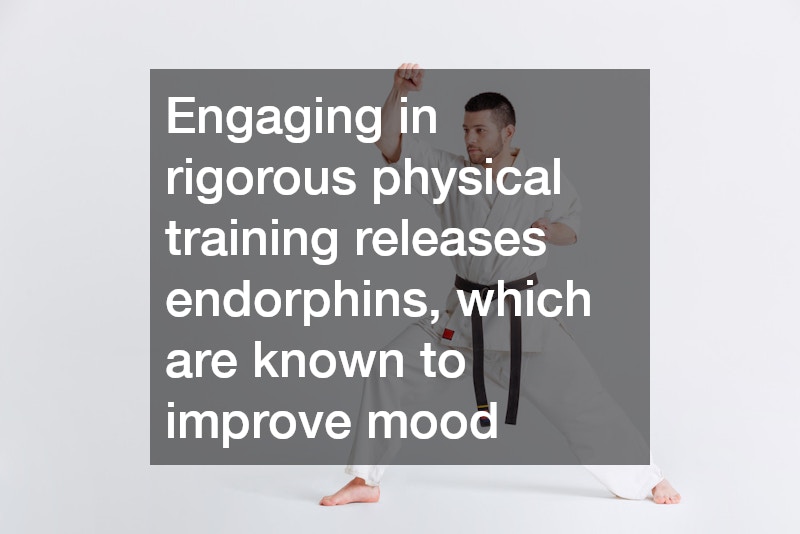There are various ways that practicing martial arts can enhance your self-esteem. From building confidence to fostering discipline, martial arts can be a transformative practice for individuals of all ages. Whether you’re considering taking up martial arts for self-defense, fitness, or personal growth, you’ll discover how these practice methods can significantly influence your self-worth and overall mental health.
How Martial Arts Fosters Confidence
Martial arts training often involves overcoming numerous challenges that participants face regularly. As practitioners set goals, such as mastering a specific technique or achieving a certain belt level, the process of goal-setting and achievement substantially boosts one’s confidence.
The feeling of accomplishment that comes from completing complex katas or sparring with a partner fosters a positive self-image.
Moreover, the environment within martial arts schools promotes constructive feedback and encouragement from instructors and peers. This support system allows individuals to develop a stronger sense of self, as they are celebrated for their efforts and progress rather than just the results. Over time, this culture of recognition nurtures an individual’s belief in their capabilities.
Additionally, overcoming physical challenges, such as mastering difficult stances or practicing intricate combinations, leads to a sense of physical empowerment. Participants realize their own strength and abilities, which contributes directly to solidifying their self-confidence. Many practitioners report that this enhanced confidence transcends the dojo and positively influences various aspects of their lives, including academic or professional settings.
How Martial Arts Helps with Anxiety and Stress Management
Many practitioners find that the physical activity associated with martial arts serves as an excellent outlet for managing anxiety and stress. Engaging in rigorous physical training releases endorphins, which are known to improve mood and reduce feelings of tension and anxiety. This immediate relief from stress leads to an overall boost in self-esteem, as individuals feel more in control of their emotions.
The focus required during martial arts practice demands participants to be present and engaged, effectively redirecting attention from daily stressors. This mindfulness aspect not only enhances physical techniques but also promotes mental clarity, leaving practitioners with a sense of accomplishment and reduced anxiety after each session. Many find that this escape from external pressures forms a strong foundation for improved self-worth.
Additionally, through learning to regulate their breath and body movements, practitioners develop resilience against stressors encountered in everyday life. The skills learned in martial arts, such as combating panic through physical grounding, increase emotional intelligence, allowing individuals to handle real-life challenges more effectively. Overcoming these emotional hurdles inherently boosts self-esteem and positively influences interpersonal relationships.
How Discipline Plays a Role in Self-Esteem Development
Martial arts require discipline and perseverance, qualities that are invaluable for personal growth. Consistent training schedules and the dedication needed to improve skills foster a strong work ethic that extends beyond the dojo. Practicing discipline in martial arts translates directly into other areas of life, whether academic, professional, or personal, thereby reinforcing self-respect and self-esteem.
Every minor achievement in martial arts, such as perfecting a technique or earning stripes on a belt, is a testament to the discipline exerted. This consistent effort not only cultivates skill mastery but serves as a reminder to practitioners that hard work yields results. This sense of accomplishment bolsters their confidence, reinforcing a growth mindset and a belief in their ability to overcome future challenges.
Ultimately, this disciplined approach leads to a deeper sense of self-responsibility and integrity. When individuals see their own progress and remain committed to their martial arts journey, they cultivate a strong and positive identity. This newfound self-worth fortifies self-esteem, encouraging practitioners to take more risks and pursue greater aspirations outside of martial arts.
How Social Interactions in Martial Arts Build Self-Esteem
Engaging with a community in martial arts settings allows individuals to develop social skills and build supportive relationships. Training often involves pair work or group exercises where practitioners learn to communicate effectively and support one another in their training journeys. These interactions lead to improved self-esteem as individuals feel valued and accepted within their martial arts community.
Furthermore, the camaraderie developed in these environments fosters a sense of belonging, crucial for enhancing self-worth. Participants often celebrate each other’s successes, whether big or small, and this shared sense of achievement can be uplifting. Individuals learn to rely on their peers for support, which strengthens their confidence and reinforces the belief that they are part of something larger than themselves.
Additionally, positive feedback from instructors and peers encourages individuals to step outside their comfort zones, whether participating in competitions or demonstrating techniques to larger groups. Facing these challenges together creates bonds and cultivates emotional resilience, making participants more likely to pursue their goals with enthusiasm and confidence. Over time, the supportive martial arts community greatly contributes to an individual’s overall self-esteem.
Martial arts offer a wealth of benefits that extend far beyond physical fitness. By fostering confidence, discipline, stress management, and social connection, martial arts can be a powerful tool for enhancing self-esteem. Engaging in martial arts not only empowers individuals physically but also enriches their mental and emotional states, creating a holistic approach to self-improvement and overall well-being.




